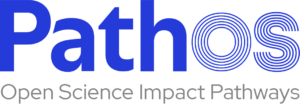 PathOS is a Horizon Europe-funded project aimed at identifying and quantifying the Key Impact Pathways of Open Science (OS) in relation to the research system and its interactions with economic and societal actors. Within this project, CSIL focused on developing indicators for the economic impacts of Open Science and measuring both direct and indirect effects.
PathOS is a Horizon Europe-funded project aimed at identifying and quantifying the Key Impact Pathways of Open Science (OS) in relation to the research system and its interactions with economic and societal actors. Within this project, CSIL focused on developing indicators for the economic impacts of Open Science and measuring both direct and indirect effects.
The project aimed to understand how Open Science influences innovation, knowledge transfer, and economic efficiency. Specifically, PathOS explored areas such as new products and methods resulting from OS, the usage of patents, and the accelerated knowledge transfer from the reuse of OS outputs by the industry. Additionally, the project examined the efficiency in production costs due to open tools and software, the creation of start-ups and spin-offs, and academic-industry collaborations in OS. Economic costs and benefits, particularly related to publishing and Article Processing Charges (APCs), were also analysed.
The primary goal of PathOS was to provide a comprehensive understanding of the impact pathways of Open Science on the economy and society, broken down by cross-cutting issues like gender, health, environment, and economic sectors (NACE).
CSIL led the work package dedicated to a Cost-Benefit Analysis (CBA) approach for assessing selected open science practices. This involved:
Beyond the methodological contributions, CSIL played a key role in the communication and dissemination activities to ensure that findings were clearly understood and actionable by a broad audience. We developed factsheets and a dedicated video summarising the UniProt and RCAAP case studies, alongside slide decks, blog posts, and newsletter content, ensuring that our findings were accessible and actionable for a broad audience.
For more information, visit the PathOS website, subscribe to the newsletter and follow the project’s social media channels (LinkedIn | X).